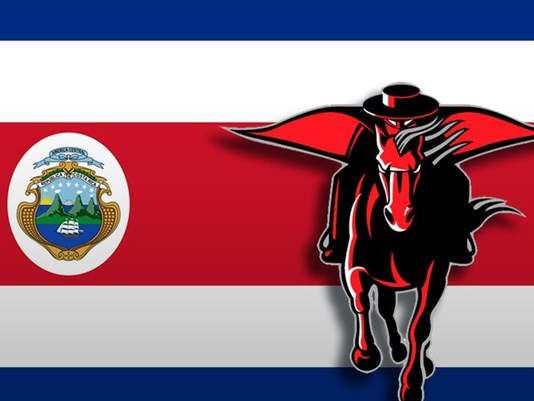Costa Rica News – Recently there has been considerable local media coverage given to Texas Tech’s plans to open a degree granting satellite campus in San Jose, Costa Rica, and to the benefits the project will provide TTU. One question that keeps being asked — both here and in San Jose — is “why Costa Rica?”
 This is reasonable given that Central America has been portrayed for decades as a region of conflicts, political instability, anti-American sentiment, poverty, and more recently drug smuggling and gang related hyper-violence. (Some of the highest murder rates in the world, exceeding even war zones, are found in Honduras, Guatemala and El Salvador — which is on the brink of a renewed civil war between security forces and its gangs.) But in this highly turbulent region there is an island of peace, stability and relative prosperity — Costa Rica — which will hopefully serve as a model for the rest of Central America (and even beyond — since its positive attributes would be welcome in other globally troubled regions such as Africa.)
This is reasonable given that Central America has been portrayed for decades as a region of conflicts, political instability, anti-American sentiment, poverty, and more recently drug smuggling and gang related hyper-violence. (Some of the highest murder rates in the world, exceeding even war zones, are found in Honduras, Guatemala and El Salvador — which is on the brink of a renewed civil war between security forces and its gangs.) But in this highly turbulent region there is an island of peace, stability and relative prosperity — Costa Rica — which will hopefully serve as a model for the rest of Central America (and even beyond — since its positive attributes would be welcome in other globally troubled regions such as Africa.)
While the nations of Central America share the same colonial history and similar climate and geography — sparkling beaches, breathtaking mountains and lush forests — there is one major difference between Costa Rica and the others: good governance.
After winning a brutal civil war in 1948, then President Figueres took the unprecedented step of abolishing all the armed forces and transferring the defense budget to education, health care and environmental protection. Having spent my diplomatic career in impoverished dictatorships makes me appreciate the enormity of this step from two perspectives: yes, the additional funding for the population’s welfare has been a huge plus for development; but just as significantly, not having a uniformed military has saved the country from tremendous potential harm. (In countries like Costa Rica, with no real external threats, militaries actually destabilize the nation as they engage in politics, human rights violations, coups, corruption and establish economic monopolies.) The country’s contribution to regional stability was recognized when President Arias won the Nobel Peace Prize in 1987 for helping end several Central American conflicts.
By taking this untraveled fork in the road in 1948, Costa Rica today is far ahead of its “neighborhood” in its people’s overall well-being (stability, safety, security, democracy, education, health care, longevity, etc.) Today the country spends almost 30 percent of its budget on education and 25 percent of its total land has been preserved in national parks and ecological reserves. It also boasts an independent election commission and elected officials cannot serve consecutive terms. For the third time in recent years, Costa Rica has finished first in the annual Happy Planet Index of global rankings (happyplanetindex.org), far ahead of much richer nations.
Even its national motto, “Pura Vida” — translated as “pure life” but conveying so much more — shows the nation’s emphasis on life quality. And unlike in some Latin countries, Costa Ricans like Americans, they host thousands of U.S. residents, and English is widely spoken in the country. While someone from highly developed Europe or North America arriving in San Jose would still see a developing country, to Costa Rica’s neighbors it’s “El Dorado” — and migrants flock from all over the region to find work and enjoy its benefits. Costa Rica has peacefully absorbed about 500,000 Nicaraguans into its society and labor pool — which for this country of 4.8 million people equates to the U.S. taking in 33 million migrants.
Parallel to its social progress and democracy, Costa Rica has actively promoted economic policies favorable to the private sector and entrepreneurship. Beyond enjoying one of the highest economic growth rates in Latin America, the nation seeks to benefit from embracing the 21st century’s cutting edge industries — such as high tech, medical devices and life sciences. In addition, Costa Rica seeks to wisely exploit its natural treasures by adopting current global tourism trends, such as ecotourism, in its strategy. This means continuing to focus on education — especially quality higher education — to give the population the needed skills for achieving the nation’s ambitious goals. And this is why Texas Tech will be an ideal partner for Costa Rica — because we can offer exactly the highest quality types of degree programs that nation needs to succeed.
What makes this collaboration especially attractive is the private sector component of the partnership. TTU’s Costa Rican partner, beyond being a highly respected, well-funded major multi-national corporation with a history of successful ventures throughout Latin America, is also dedicated to helping Costa Rica achieve its national development objectives. This truly looks to be a project with three long-term winners: Texas Tech, our partner and Costa Rica. My greatest regret is not having experienced such a partnership before I went off to Africa decades ago where I was continuously frustrated by unsuccessful development models — countries were ever “developing” but never quite getting there. While development “experts” have forever extolled the virtues of public-private partnerships, I never really experienced such a successful one until now. Hopefully once the project starts bearing results, it will serve as a model for other nations that dream of following Costa Rica’s example of providing its people the opportunities to thrive in the 21st century. And by the way, Costa Rica also boasts a fledgling U.S.-style football league — so someday TTU-CR may have its own championship team!
By Tibor Nagy, Lubbock Online
TIBOR NAGY is vice provost for international affairs at Texas Tech and served as U.S. ambassador to Ethiopia from 1999 to 2002 and to Guinea from 1996 to 1999.

